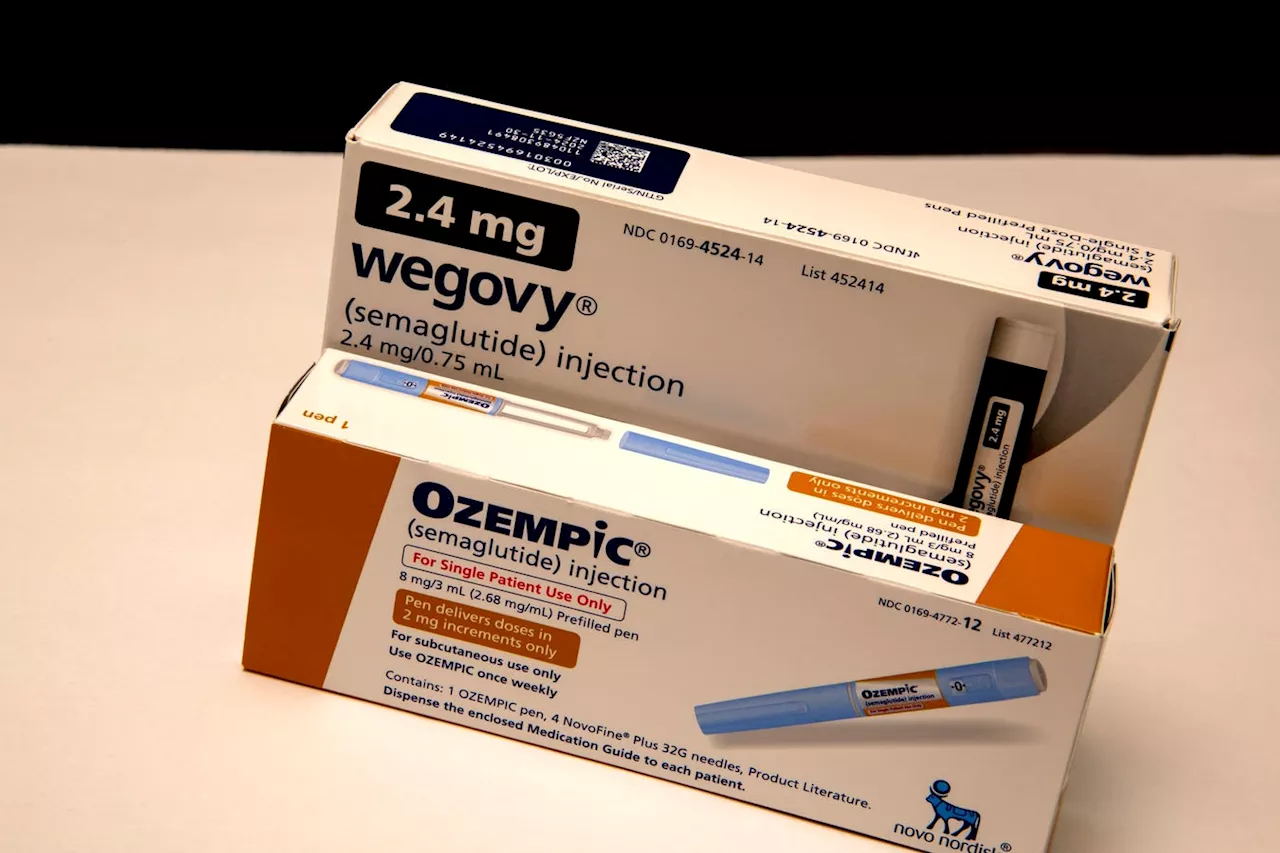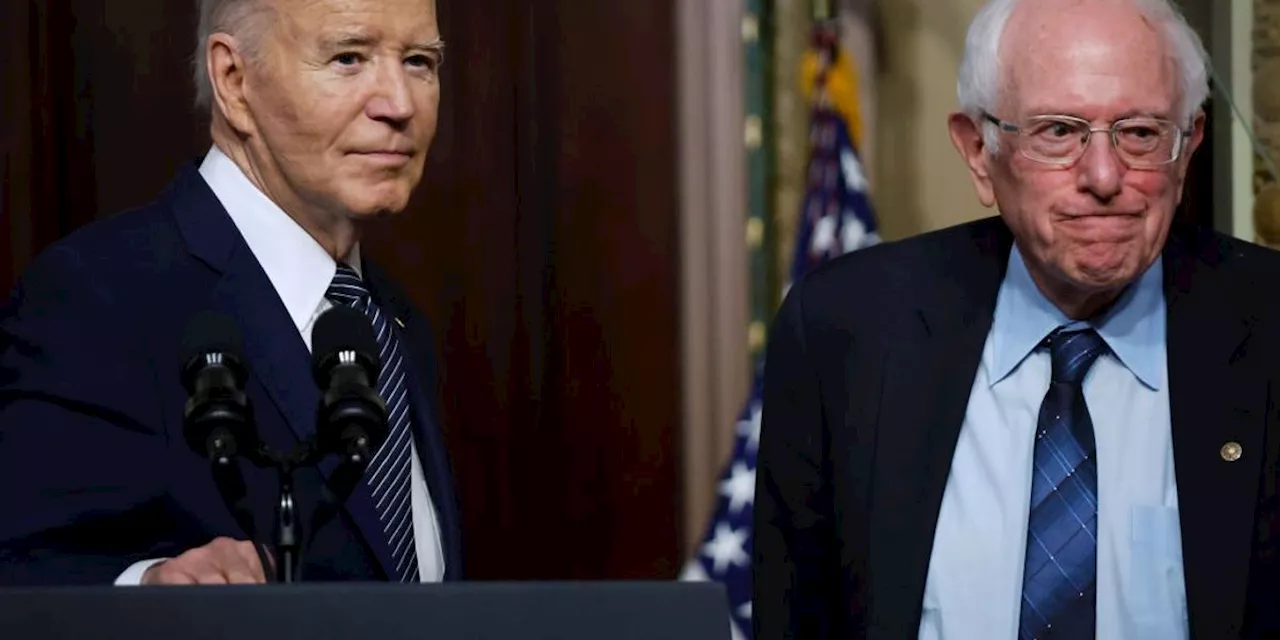U.S. Senator Bernie Sanders welcomed the Biden administration's decision to include Ozempic and Wegovy in Medicare drug price negotiations but emphasized the program's future depends on President-elect Donald Trump. The pharmaceutical industry reportedly seeks to weaken the program, while Trump's nominee for HHS, Robert F. Kennedy Jr., would oversee the negotiations. The announcement follows reports of the pharmaceutical industry pressuring Trump's team to weaken the program established by the Inflation Reduction Act. Experts foresee three potential scenarios for the Trump administration: maintaining the program, weakening it, or repealing it.
U.S. Sen. Bernie Sanders expressed his approval on Friday regarding the Biden administration's decision to include the costly and increasingly popular drugs Ozempic and Wegovy in a list of 15 medications slated for price negotiations. However, Sanders emphasized this inclusion contingent on President-elect Donald Trump 's willingness to let the Medicare price-negotiation program continue.
In a statement, Sanders questioned whether Trump would uphold his past criticism of Big Pharma and ensure all Americans, not just those on Medicare, pay prices comparable to those in other countries for Ozempic and Wegovy. He also challenged whether Trump would back down from his commitment and allow the pharmaceutical industry to maintain its exorbitant pricing practices by circumventing the government's authority to negotiate prices. Sanders, known for publicly scrutinizing pharmaceutical giant Novo Nordisk's CEO regarding the high prices of Ozempic and Wegovy, stated, 'We will soon find out.' Reports from Reuters indicate that following the 2024 election, the pharmaceutical industry began pressuring Trump's team to weaken the price negotiation program established by the Inflation Reduction Act. The drug industry reportedly aims to leverage Republican efforts to eliminate certain energy and green subsidy provisions within the legislation. Despite this pressure, the drug industry is not actively lobbying senators against confirming Robert F. Kennedy Jr., Trump's nominee to lead the Department of Health and Human Services (HHS). If confirmed, Kennedy would oversee the price-negotiation program. Tricia Neuman, senior vice president at KFF, outlined three potential scenarios for the Trump administration regarding the Medicare negotiations program: maintaining the current course, diluting its provisions, or repealing it entirely. Neuman noted that each option presents tradeoffs, but maintaining the status quo would likely be the most popular choice. Meanwhile, the HHS affirmed on Friday that the 15 newly selected drugs, adding to the 10 medications that have already undergone price negotiations, accounted for approximately $41 billion in total gross covered prescription drug costs under Medicare Part D. This represents over a third of the total gross covered prescription drug costs under Medicare Part D for both the 15 newly selected drugs and the 10 drugs from the first negotiation cycle. If the Trump administration permits negotiations on these 15 drugs to proceed, the new prices would take effect in 2027. Merith Basey, executive director of Patients for Affordable Drugs, hailed the announcement as a continuation of progress made in lowering drug costs. Basey stated that for years, drug corporations have exploited the system by arbitrarily raising prices, leaving millions of patients vulnerable. The 2022 prescription drug law enabled Medicare to negotiate better deals on 10 of the most expensive and commonly used drugs last year. Today's announcement of 15 additional high-cost drugs builds on this historic progress and will lower costs for millions more patients in 2027. However, Basey stressed the need to continuously advocate for expanding the Medicare negotiation program, emphasizing that patients fought hard for its implementation and will defend it against pharma's attacks. She concluded that no one should have to choose between life-saving drugs and their fundamental needs
MEDICARE DRUG PRICES OZEMPIC WEGOVY DONALD TRUMP ROBERT KENNEDY JR. PHARMACEUTICAL INDUSTRY INFLATION REDUCTION ACT HHS
United States Latest News, United States Headlines
Similar News:You can also read news stories similar to this one that we have collected from other news sources.
 Trump's Future for Medicare Drug Pricing Negotiations UncertainThe Inflation Reduction Act's drug pricing negotiations, a landmark achievement under President Biden, face a precarious future under President-elect Trump. While the program aims to lower medication costs for Medicare recipients, Trump allies have signaled potential opposition, raising concerns about its continuation.
Trump's Future for Medicare Drug Pricing Negotiations UncertainThe Inflation Reduction Act's drug pricing negotiations, a landmark achievement under President Biden, face a precarious future under President-elect Trump. While the program aims to lower medication costs for Medicare recipients, Trump allies have signaled potential opposition, raising concerns about its continuation.
Read more »
 Trump Faces Deal: Medicare Coverage for Weight-Loss Drugs in Exchange for Price CutsPresident-elect Trump can capitalize on a new law allowing Medicare to cover GLP-1 drugs for weight loss. However, he must negotiate a deal with drug companies for substantial price reductions.
Trump Faces Deal: Medicare Coverage for Weight-Loss Drugs in Exchange for Price CutsPresident-elect Trump can capitalize on a new law allowing Medicare to cover GLP-1 drugs for weight loss. However, he must negotiate a deal with drug companies for substantial price reductions.
Read more »
 House Speaker Rules Out Cuts to Social Security and Medicare in Trump Funding PlanHouse Speaker Mike Johnson assured that Social Security and Medicare will be protected in the legislative package aimed at funding President-elect Donald Trump's agenda.
House Speaker Rules Out Cuts to Social Security and Medicare in Trump Funding PlanHouse Speaker Mike Johnson assured that Social Security and Medicare will be protected in the legislative package aimed at funding President-elect Donald Trump's agenda.
Read more »
 Trump's Undocumented Immigrant Lie Hurts Social Security and MedicareA New York Times report reveals that undocumented immigrants contribute to social services like Social Security and Medicare through payroll taxes but are ineligible to receive benefits. This contradicts Trump's campaign claims that they drain these vital programs. The report highlights the economic consequences of mass deportations, emphasizing that they would strain, not strengthen, these services.
Trump's Undocumented Immigrant Lie Hurts Social Security and MedicareA New York Times report reveals that undocumented immigrants contribute to social services like Social Security and Medicare through payroll taxes but are ineligible to receive benefits. This contradicts Trump's campaign claims that they drain these vital programs. The report highlights the economic consequences of mass deportations, emphasizing that they would strain, not strengthen, these services.
Read more »
 Our Plan to Stop Trump and Musk From Destroying Social Security, Medicare, and MedicaidAlex Lawson is the Executive Director of Social Security Works, the convening organization of the Strengthen Social Security Coalition -- a coalition made up of over 340 national and state organizations representing over 50 million Americans.
Our Plan to Stop Trump and Musk From Destroying Social Security, Medicare, and MedicaidAlex Lawson is the Executive Director of Social Security Works, the convening organization of the Strengthen Social Security Coalition -- a coalition made up of over 340 national and state organizations representing over 50 million Americans.
Read more »
 Trump Condemns Sale of Unused Border Wall Pieces, Citing Future Construction PlansPresident-elect Donald Trump criticized the sale of unused border wall materials by the government, calling on President Joe Biden to halt the process. Trump argued that selling the materials for a fraction of their value was short-sighted considering plans for future wall construction. However, the federal government is legally obligated to dispose of excess wall materials, with some being donated and the remainder sold through GovPlanet.
Trump Condemns Sale of Unused Border Wall Pieces, Citing Future Construction PlansPresident-elect Donald Trump criticized the sale of unused border wall materials by the government, calling on President Joe Biden to halt the process. Trump argued that selling the materials for a fraction of their value was short-sighted considering plans for future wall construction. However, the federal government is legally obligated to dispose of excess wall materials, with some being donated and the remainder sold through GovPlanet.
Read more »
